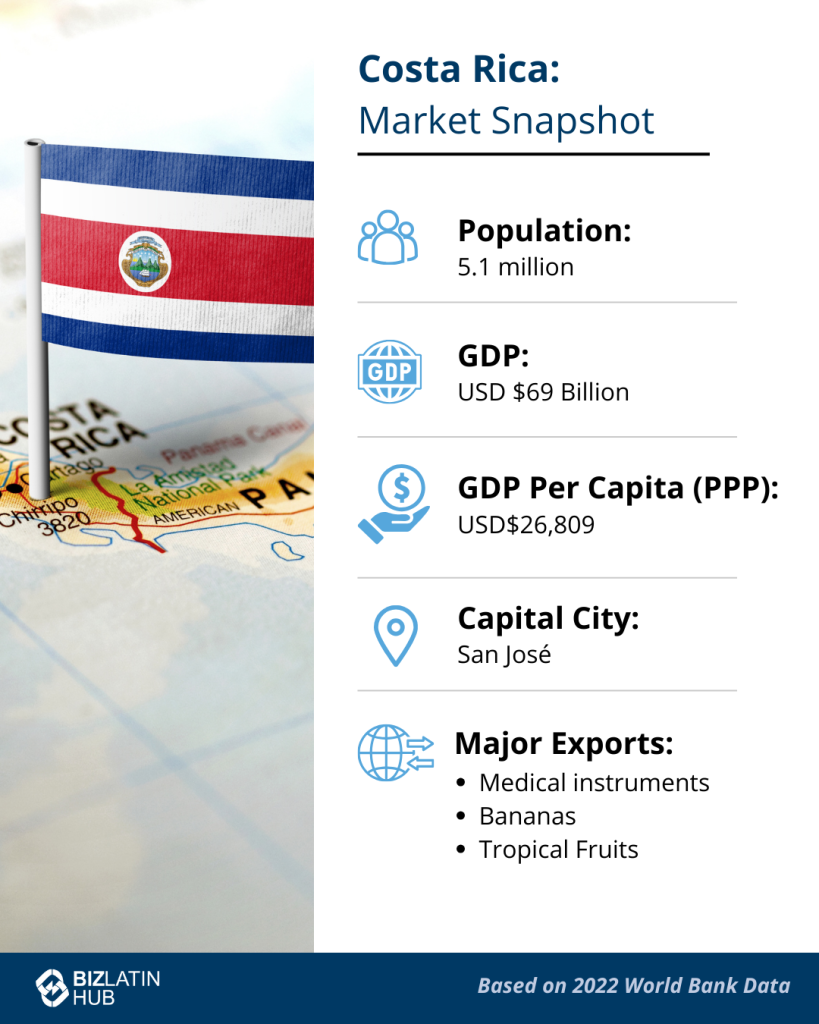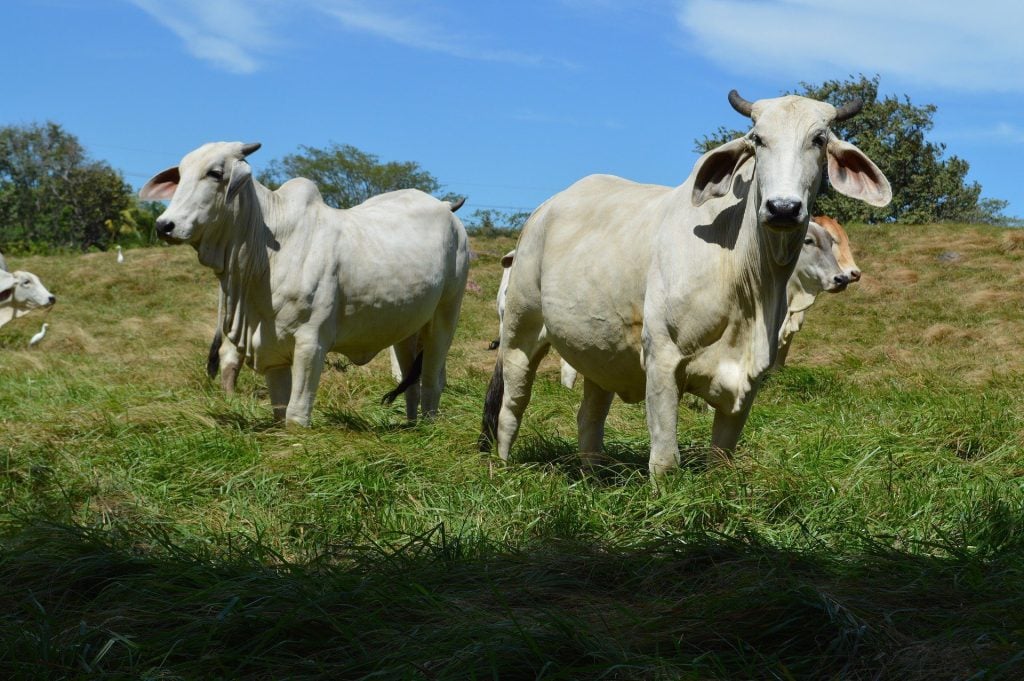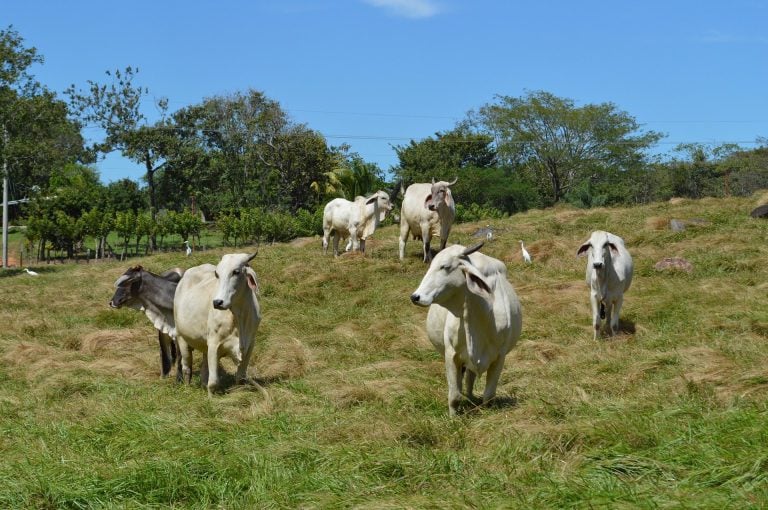The Costa Rica cattle industry is reportedly now carbon positive, nine years after launching a plan to promote sustainable ranching practices through the planting of trees on livestock farms.

The project initially started on 140 ranches in 2013 and expects to count over 1,700 farms among its participants by the end of April. At the beginning of this year, cattle ranches were reportedly already home to 18% of the country’s forested areas.
According to Jorge Segura, the coordinator of Costa Rica’s National Cattle Ranching Program, strong uptake means that more than 2,000 livestock farms could have joined by the end of 2022.
That would still only represent approximately 20% of the cattle ranches in the country, according to a government report released in 2019 [PDF], with Segura pointing out the potential for the project to scale significantly.
“The next level, which is a bigger leap, and which is up to the next administration, is to reach a level of two or three thousand more farms, depending on international support, and then the third level is ten thousand more farms,” he was reported saying by La Republica.
SEE ALSO: Find a Professional Employer Organization (PEO) in Costa Rica
While Costa Rica is by no means a major beef producer by regional standards, the country’s cattle industry has grown significantly in recent years, from 1.1 million head of cattle in 2000 up to 1.6 million in 2019. Meanwhile, meat exports hit a 35-year high in 2021, according to La Republica.
According to the National Institute of Statistics and Census of Costa Rica (INEC) the country was home to around 1.4 million head of cattle in 2021.
The Costa Rica cattle industry’s achievement at reaching carbon-positive status comes as a result of it hitting targets established in the first phase of the country’s National Decarbonization Plan, which aims to get the country to net zero carbon emissions by 2050.
The first phase covers the years 2019 to 2022, with the country reportedly reducing greenhouse gas emissions by 73,000 tonnes of CO2-equivalent gasses in the first year, and 83,000 tonnes during the second.
As of February 2022, in total 43% of the goals established in that plan had been met, putting Costa Rica on course to have met all goals by the end of the year. Currently, the country is seeking to raise funds in support of its ongoing efforts to reduce emissions and meet targets established to help tackle climate change.
Costa Rica cattle industry key to meeting environmental goals
The project to reduce emissions in the Costa Rica cattle industry was originally launched as part of the country’s efforts to implement Nationally Appropriate Mitigation Action (NAMA) – a global initiative to reduce greenhouse gas emissions.
It was subsequently bolstered by the Ministry of Environment and Energy launching a Strategy for Low Carbon Cattle Farming in Costa Rica, in 2015, before the National Decarbonization Plan provided further impetus.
According to La Republica, the planting of trees to create forested areas on ranches that have been key to those efforts has seen the Costa Rica cattle industry reach the point of capturing more greenhouse gasses than it produces.

Cattle are the number one agricultural source of greenhouse gas emissions worldwide, with methane produced by livestock shorter lived in the atmosphere than carbon dioxide, but 28 times more potent in terms of the warming effect it has.
According to the Clarity and Leadership for Environmental Awareness and Research Center at UC Davis (CLEAR Center), the global cattle industry produces 7.1 gigatonnes of CO2-equivalent gasses, representing 14.5% of greenhouse gas emissions worldwide.
Those emissions are produced by roughly 1 billion head of cattle farmed around the world, meaning that livestock numbers in Costa Rica make up less than 1.4% of the global total.
Brazil has the most head of cattle of any nation in the world, with more than 210 million in the country in 2019, and exports exceeding 10 million tonnes of beef per year to make it the world’s largest exporter of the meat.
Costa Rica, meanwhile, is the 14th-largest producer of beef in Latin America, according to research published in 2020 by the Agricultural & Applied Economics Association.
Nevertheless, the country’s ability to implement sustainable ranching practices and achieve carbon positive status through only a fraction of those will serve as a compelling example to other beef-producing nations.
Costa Rica cattle industry achievements part of regional efforts
The Costa Rica cattle industry’s success in reaching carbon positive status is just the latest example of sustainable cattle ranching seen in Latin America, where livestock rearing is crucial to numerous economies.
In December 2021, Uruguay became the first country from South America to export meat certified as “carbon neutral,” with a consignment destined for Switzerland certified as having a net zero carbon footprint.
That followed an assessment from meat certification body LSQA, which is also active in Argentina, Brazil, Chile, Mexico, and Paraguay, which along with Uruguay includes five of the region’s six biggest beef producing nations.
All of those nations apart from Paraguay signed up for the Global Methane Pledge, an international commitment agreed by 106 nations during last year’s COP26 climate summit and seeking to reduce global methane emissions by 30% in the next eight years.
With livestock, such a major source of methane, that makes the uptake and promotion of sustainable ranching practices is a critical tool in meeting that goal.
As such, the success of the Costa Rican cattle industry in reaching carbon-positive status represents a milestone that could inspire the uptake of similar methods in other countries from the region where beef production is much higher.
Biz Latin Hub can assist you doing business in Latin America
At Biz Latin Hub, we provide integrated market entry and back-office services throughout Latin America and the Caribbean, with offices in 17 major cities throughout the region.
Our portfolio of services includes company formation, accounting & taxation, corporate legal services, due diligence, and hiring & PEO, and our unrivaled regional presence means we are ideal partners to support multi-jurisdiction market entries and cross-border operations.
Contact us today to find out more about how we can assist you.If you found this article on the Costa Rica cattle industry of interest, check out the rest of our coverage of this Central American country. Or read about our team and expert authors.





